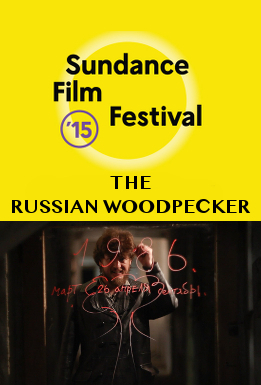Starting without much direction or a clear identity, Chad Garcia's film The Russian Woodpecker is both messy and inconsistent as it works to unveil the truth behind the Chernobyl disaster.
Though he has an abundance of information and a vocal central subject at his disposal, Garcia is unable to sort through the excess, struggling to narrow down his focus and give his audience a clear conscious story in which to follow. Fortunately, Ukrainian artist Fedor Alexandrovich carries a strong energy, filling in the gaps and giving the film a solid final act that saves it from an unfortunate misguided film to a Sundance worthy feature film debut.
Though he was only four years old when the Chernobyl disaster occurred, Alexandrovich's life was heavily influenced by the events of that fateful day in April of 1986. In an effort to better his understanding of the events leading up to the horrific explosion, Alexandrovich becomes fascinated with the Duga - a massive antenna near the Chernobyl nuclear power plant. Still shrouded in mystery, the Duga finds itself at the center of Alexandrovich's investigation, providing countless key pieces to the jigsaw puzzle of information that finally shines a small light on the events (and decisions) that lead to the most destructive nuclear explosion in history.
Alexandrovich's transformation throughout the film is as fascinating as the film's central premise itself. And though he exudes a strong love him/hate him persona, it is nearly impossible not to appreciate his passion and longing for a deeper understanding into the catastrophe that altered his entire life. He is a bit all over the place, especially during the first half of the film, but when he acquires a strong grip on the situation at hand, and is able to channel his energy, the film improves greatly.
From a film quality perspective, Garcia fails to venture far outside of the box, keeping things basic as he puts a stronger emphasis on the story than the entertainment value that the audience craves. While it is frustrating, and will likely cause many to give up on the film during its first half hour, there is logic behind the decision. That being said, it's difficult to justify such an action when the film has a difficult time finding its footing and giving audiences concise, pertinent information.
In fact, it isn't until Alexandrovich stands behind a glass door and visually pieces together the complex timeline of events, finally allowing the information to take shape that the film really begins to understand its own purpose. Combine that with a truly impressive shot from the top of the Duga and The Russian Woodpecker gains immense traction during its final half hour.
Pulling together its facts and showing us how the Chernobyl disaster has shaped the Ukrainian government today, Garcia's film is an eye-opening experience. And though the film itself isn't astounding by any measure, it is still relevant and interesting enough to be worthy of a watch - you just might not find yourself fully entertained throughout the process. But sometimes knowledge is more vital than creativity.

